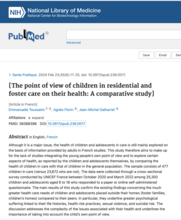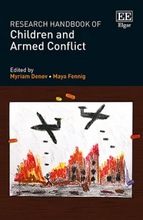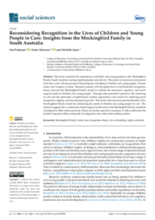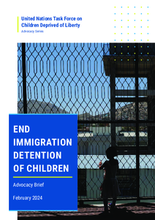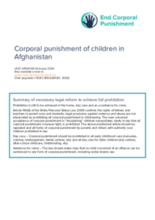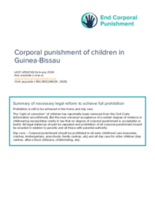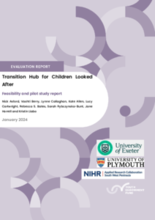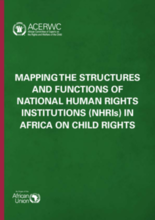Displaying 281 - 290 of 10392
Although it is a major issue, the health of children and adolescents in care is still mainly explored on the basis of information provided by adults in French studies. This study therefore aims to make up for the lack of studies integrating the young people’s own point of view and to explore certain aspects of health, as reported by the children and adolescents themselves, by comparing the health of children in care with that of children in the general population.
This handbook explores children’s lived realities of armed conflict and its aftermath and features empirical, conceptual and policy analyses alongside first-hand accounts of the experiences of war-affected children and youth.
This study explored the experiences of children and young people in the community-based support model of the Mockingbird Family, in South Australia, during implementation and roll-out. The study involved semi-structured interviews with a diverse group of 54 participants, including 21 children and young people, 12 foster carers, and 14 agency workers.
This advocacy brief provides an overview of promising practices and lessons learned to end child immigration detention in the U.S. and sets out a range of policy actions needed to scale up efforts to end this form of violence.
This is a corporal punishment country report for Afghanistan. In Afghanistan, the Law on Protection of Child Rights 2019 prohibits corporal punishment in alternative care settings and in penal institutions.
This is a corporal punishment country report for Guinea-Bissau. While prohibition of corporal punishment is still to be achieved in the home and day care, the Child Protection Code 2021 of Guinea-Bissau prohibits corporal punishment in alternative care settings, schools and in penal institutions.
Family for Every Child launched its global inter-agency guidance on supporting kinship care aimed at policy makers and programme managers during this webinar on 1 February 2024.
This is a feasibility and pilot evaluation of the Transition Hub -- a multi-disciplinary team which aims to support young people aged 11 to 17 who are making the transition into care or experiencing a placement transition in England. The feasibility phase explored the feasibility of delivery and aimed to provide lessons for further research. The pilot phase examined whether the Transition Hub might evidence promise on desired outcomes and sought to offer further learning about delivery and acceptability.
ACERWC released a study on the structures and functions of NHRIs on child protection to assess how child rights issues are incorporated in their mandates. The study identifies challenges and proposes areas to strengthen collaboration.
Amy and Ano are twins, but just after they were born they were taken from their mother and sold to separate families.They found out about each other by chance and as they delved into their past, they realised thousands of babies in Georgia were stolen from hospitals and sold for adoption, some as recently as 2005. Now they want answers.

